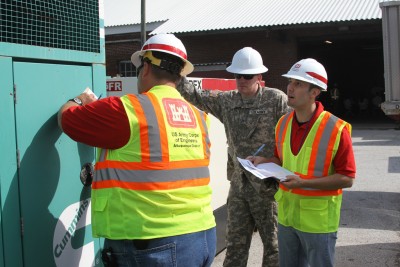
Many students, when perusing a list of potential programs of study, skip right over the option for fire science. “I don’t want to be a firefighter,” they might think. “So why would I study that?”
While it’s true that a large number of graduates with degrees in fire science go on to work in fire departments and do the hard work of fighting fires, there are actually several other potential career paths that one could pursue, none of which involve actually donning fire gear and carrying heavy equipment up several flights of stairs.
In fact, depending on your background and interests, earning a fire science degree could actually open up a wealth of career opportunities in a diverse array of industries, many of which you probably never even considered.
Not convinced? Look at these career options.
Risk and Safety Management
Organizations of all sizes — including private companies and government agencies — have a vested interest in identifying potential safety hazards and mitigating their risk to people, property, and the environment.
For example, in a hospital, tools and environment must be arranged and maintained in such a way that patients and staff cannot accidentally trip over cords or otherwise endanger themselves. Organizations hire safety professionals, either on a contract basis or as a full-time staff member, to inspect work environments, including operational, transportation, and production areas and make recommendations to reduce risk.
Often, individuals with a background in fire science are called upon to fill these roles, thanks to their unique understanding of fire risks and overall safety best practices. In fact, many companies look for safety and risk managers who are Certified Safety Professionals (CPS), as designated by the Board of Certified Safety Professionals (BCSP), and earning a degree in fire science is a good first step toward earning that credential.
Experienced risk management professionals earn a median annual salary of $98,000, according to BCSP, and opportunities are available in a number of industries.
Investigators and Inspectors

Whenever there is a fire, law enforcement and insurance companies generally require an investigation into the cause of the fire. If the fire is deemed arson, or if it was due to negligence, the results of the investigation will be used to hold the arsonists responsible and to determine how much compensation the property owner is entitled to receive.
Law enforcement agencies, fire departments, and insurance companies hire fire investigators to investigate fires and uncover their cause. In some cases, arson and fire investigation duties are separate (the arson investigator determines who started the fire, the fire investigator determines how the fire started) while in others the same person handles both tasks.
Conducting such investigations requires not only an understanding of fire science, but also knowledge of building materials and processes, and investigation and evidence preservation techniques. Depending on state laws, fire investigators may be required to be registered law enforcement officers. According to the Bureau of Labor Statistics, the median salary of fire investigators is $53,000 per year, and competition for open positions is intense.
Fire inspectors, who are categorized by the BLS the same as fire investigators, serve a slightly different role than investigators. Inspectors are charged with preventing fires from occurring in the first place. Inspectors typically work with businesses or public agencies, such as schools and hospitals, to ensure that there aren’t any fire hazards and that all safety equipment (such as alarms and sprinklers) are working as they should.
Most conduct initial inspections prior to a business opening or during construction, as well as regular follow-ups and post-incident inspections. Usually, inspectors are employed by fire departments.
Emergency Preparedness

In the wake of a number of major disasters, both natural and manmade, many communities and organizations have committed themselves to preparing a response to limit the potential loss of life or property.
Emergency plans generally involve local fire departments, and experts in fire science are needed to provide expertise and input into the potential fire risks that different emergency scenarios present and how to reduce them. In fact, given that a fire science program requires extensive training in all aspects of emergency management, they are uniquely positioned to take on roles in that field. The BLS predicts average growth in this field for the next decade, with median salaries in the $60,000 per year range.
A fire science degree will most certainly prepare you for a career as a firefighter, but that is not the only option. From investigations to prevention, fire experts are in demand to help reduce the risk of loss of life and property — and studying fire science could lead to an exciting and fulfilling career that you didn’t expect.
photo credit: 20131121-OC-RAE-0163 via photopin (license)
photo credit: Acknowledged Reset via photopin (license)
photo credit: Combined Response Mission Exercise via photopin (license)


